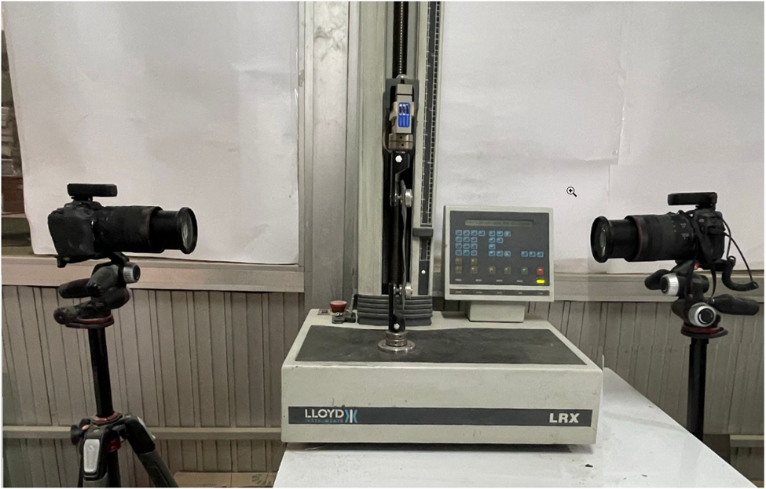
Research Project
Flapping Micro Air Vehicle: Numerical Analysis
Abstract Due to the intricate aerodynamics of flapping micro air vehicles (FMAVs), numerical analysis plays a crucial role. These simulations predict the aerodynamics performance before building prototypes, saving valuable time and resources. By analysing the flapping wing's interaction with air, numerical analysis helps engineers optimize FMAV designs for specific tasks like search and rescue or

Research Project
Pharmaceuticals Wastewater Treatment
Abstract This wastewater treatment project focuses on removing pharmaceutical compounds, such as anti-inflammatory drugs and antibiotics, from water bodies using agricultural waste materials and membrane technology. Bagasse and coffee waste are evaluated as sustainable adsorbents due to their high adsorption capacities. Membrane filtration processes, including ultrafiltration and nanofiltration

Research Project
Multi-Stage Low-Cost Treatment of Dyes and Paints Wastewater for Reuse: A Comprehensive Approach
Abstract This project proposes a multi-stage treatment approach to effectively treat dyes and paints wastewater from industries, involving coagulation, adsorption, and filtration. The goal is to mitigate environmental pollution, conserve water resources, and promote sustainable industrial practices. The comprehensive treatment method offers a cost-effective solution that can be implemented across

Research Project
Study of Deformations and failure of materials using digital image processing ANd correlation
Abstract Digital image correlation (DIC) is a non-contact optical technique used to measure displacement and strain of materials under loading. It utilizes a speckle pattern on the specimen to track deformation and calculate strain, offering a cost-effective alternative to strain gauges. Both 2D and 3D DIC setups are employed for deformation measurement, crack detection, and crack density

Research Project
Develop and study the properties of a concrete mixture to accommodate tire recycling
Abstract The objective of this project is to study the effect of using waste in concrete mixes. The main type of waste used in this project is recycled fine rubber as a replacement of fine aggregate. Concrete molds are prepared and used to make concrete elements including beams, cubes, and cylinders. Various waste percentages are examined; and the effect of the concrete mix proportions is analysed

Research Project
Developing high strength Al-Zn-Mg alloys by thermomechanical treatments
Abstract For the first time, the formation and impact of (Al, Zn)3Zr precipitates in Al-Zn-Mg-Cu alloys post-heat treatment was detailed, offering new insights into mechanical property enhancement through these discoveries. In addition, research introduces grain boundary deposition engineering as a novel method to develop aluminium alloys with specific precipitate types and mechanical properties

Research Project
High-Entropy Alloy Development
Abstract We reported the creation of novel high-entropy alloys, characterized by its lightweight nature and good mechanical properties, this is through compositional design and thermomechanical treatment marking a significant advancement for the automotive and aerospace industries. Partners University of Science and Technology Beijing, Oak Rideg National Laboratories

Research Project
Harnessing Coffee Waste for Green Corrosion Prevention and Circular Economy
Abstract The project focuses on reusing coffee waste to create a sustainable solution for corrosion prevention. Through advanced extraction methods, we harness the natural properties of coffee waste to develop a green corrosion inhibitor, offering a renewable and eco-friendly alternative for industries worldwide. By transforming coffee waste into a valuable resource, we aim to reduce environmental

Research Project
Bio-inspired Soft Robot for Monitoring Coral Reefs
Abstract Coral reefs play a crucial role in supporting a quarter of all aquatic life, but their existence is now threatened by ongoing climate changes. Our project aims to develop an underwater soft robot that can mimic the morphology and shape of actual marine creatures and to imitate their swimming motion. This robot can play a critical role as monitoring platform to understand the reefs

Research Project
Green Homes for a Sustainable Tomorrow: Advancing Energy Efficiency and Eco-Materials in Residential Buildings
Abstract This project aims to promote sustainable aspects in residential buildings, with a specific focus on energy efficiency and environmentally friendly materials. By implementing innovative strategies and technologies, the project seeks to optimize energy consumption, reduce carbon footprint, and enhance overall sustainability in homes. Additionally, the project emphasizes the use of eco